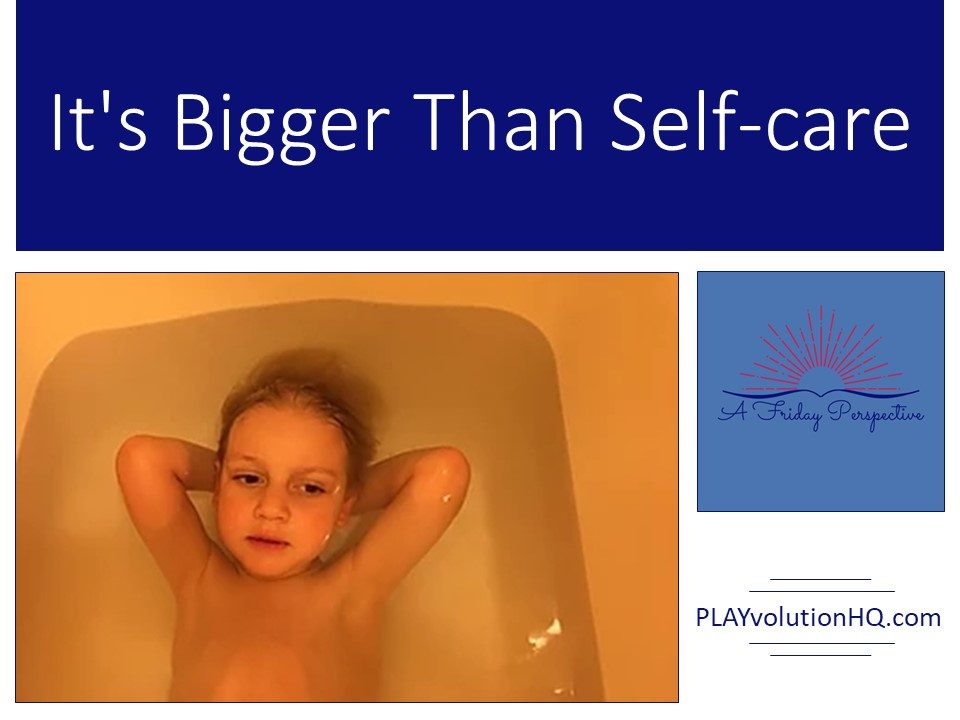
Self-care became a big buzz term several years back. It seemed all of the sudden on social media everyone was talking self-care. As of today, there are over 23 million posts on Instagram with the hashtag “selfcare.” Even Barbie is now getting in on the self-care game.
I love self-care! I am all for us being a little easier on ourselves and hopefully in turn also on each other. Yet the term self-care only tells part of the story. And while Barbie’s reminders to stash a protein bar, hit the gym, and take a bubble bath are all welcome reminders of lovely self-care ideas, sometimes it’s just not enough.
There are times in every person’s life when it can be nearly impossible to take care of oneself. When life circumstances stand in the way of proper self-care, it can feel like insulting to receive the suggestion to go home and partake in a little self-care. It’s like telling someone to calm down when they are not calm. It just doesn’t work.
So what then?
This is when we need community care. Similar to how we wouldn’t expect toddlers to take care of themselves, when a person is in crisis, we can’t expect them to take care of themselves either. In fact, we have to have the support networks to catch us before we fall. In the case of caregivers and educators working in the field of early childhood, particularly in the field of any type of preschool experience (including child care, infant care, toddler care), this is especially important.
There are many obstacles to self-care that are particular to early childhood educators. According to the Early Childhood Workforce Index 2016, “low earnings characterize paid work caring for and educating young children across all settings and roles.” Shocker, I know. In spite of this piece of relatively common knowledge, often self-care suggestions include expensive treatments or prohibitive costs. Just today, I saw a self-care calendar marketed towards teachers which featured daily suggestions of self-care strategies. One day read, “Go Shopping.” That is not a helpful suggestion for someone who is overworked and underpaid. As a workforce we can create true opportunities for community and self-care that will work for our faculty, our colleagues, and ourselves.
Other factors such as lack of access to health care, high rates of chronic stress, chaotic work environments, and lack of professional respect contribute to the need for more than just self-care. Smart programs are recognizing this need and finding ways to provide community-care opportunities. These may include built-in time in the day for meditation, education around reducing stress, and other small perks that help educators get the ground back under their feet in the tough moments.
Community care in the workplace is reliant on a culture that prioritizes mental health and physical well being as much as it prioritizes hard work. Knowing that things like meditation, quiet time, job satisfaction, a sense of accomplishment, gratitude exercises, time in nature, and physical movement are some factors that can contribute to a supportive set of community care options accessible to staff and faculty before they hit crisis mode. When we take care of each other, we can take better care of ourselves and in turn take better care of the children in our care.
So go home, take a bath, and think on it.

Post Author
Annie Friday is an educator, entrepreneur, podcast host, and birth doula. Most recently, Annie co-founded Blue Bridge Agile Learning Center in Grand Rapids, Michigan. Blue Bridge serves families engaged in self-directed education pursuits. Annie considers herself a recovering teacher engaged in the ongoing process of deschooling and relearning everything she has ever known about education. Annie is a public school parent who is actively working to decenter school in her family life. Annie believes all learning needs to be learner-led, consent-based, and rooted in play. Annie holds a master’s degree in early childhood education. Her teacher and family training focuses on supporting young children through play, nature, and mindfulness. Annie lives in Michigan with her husband and two young children. Together they enjoy playing outside hiking, camping, boating, and skiing as well as inside with board games, video games, dancing, doing yoga, and cooking.


Leave a Reply